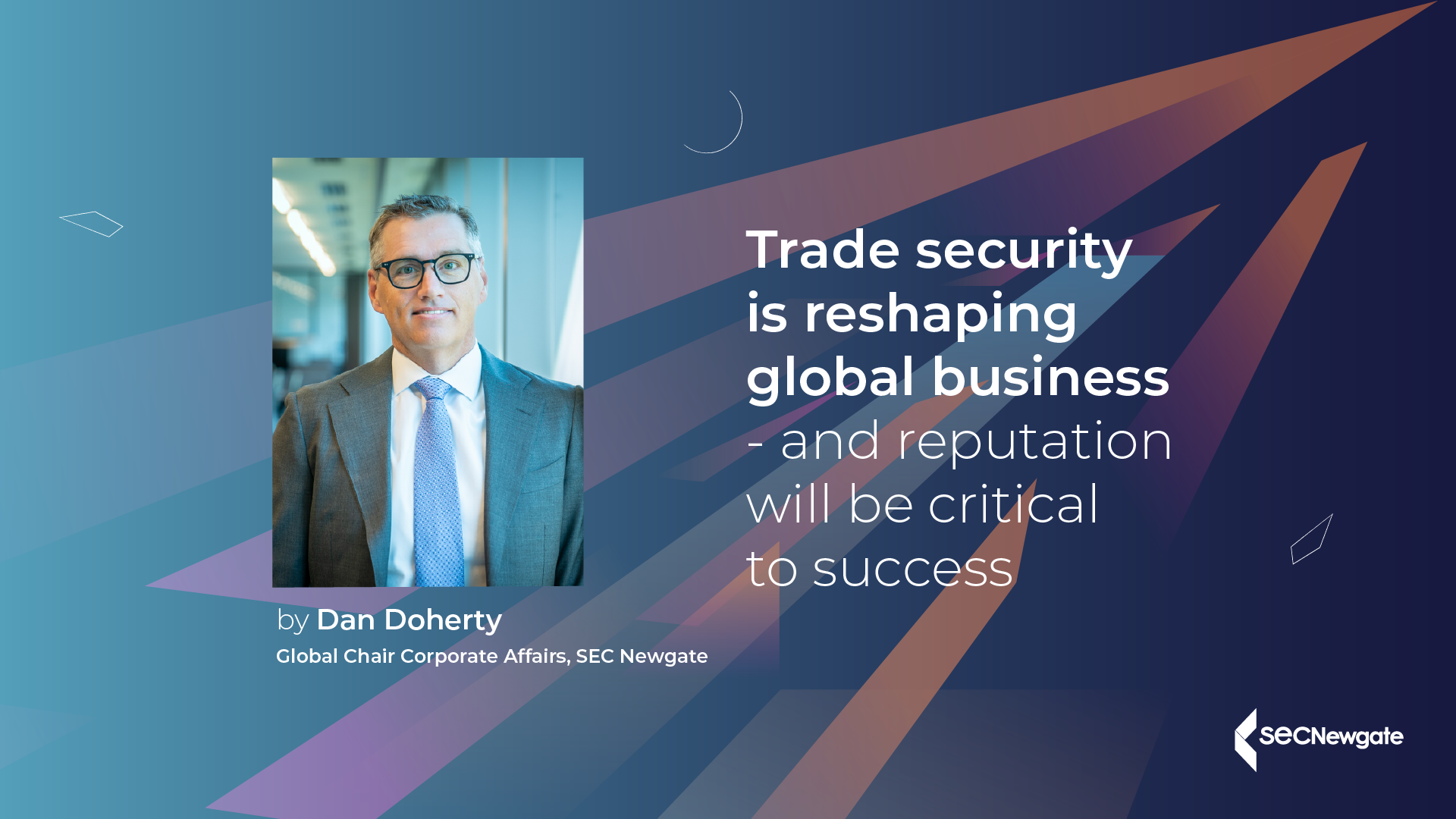About the Author
A series of geopolitical flashpoints are converging to reshape global trade—and with it, the business decisions of companies around the world. Most recently, the U.S. conducted airstrikes inside Iran, prompting the Iranian Parliament to pass a measure granting authority to block the Strait of Hormuz, one of the world’s most critical oil chokepoints. While a ceasefire now appears to have averted immediate escalation, and the measure still requires additional approvals to be enforced, the mere prospect of disrupted Persian Gulf exports has reawakened fears of another major energy and shipping crisis—and reminded business leaders just how fragile global trade routes have become.
This comes on the heels of another underappreciated but deeply consequential shift: the U.S. decision to scale back its naval protection in the Red Sea. I was in Athens on business when that news broke earlier this year and watched the near-constant flow of oil tankers arriving—many from Iraq—delivering vital energy supplies to a continent still navigating the aftershocks of the war in Ukraine. It was a moment of clarity. What seemed like a regional security development had immediate, visible implications for energy security, trade stability, and the broader business landscape. The Red Sea crisis is not just a geopolitical headline—it is another turning point with deep consequences for corporate strategy and stakeholder engagement across sectors and geographies.
For multinational companies, the implications are immediate and long-term: higher costs, greater uncertainty, and an urgent need to reassess where they operate, source, and sell. And that shift brings with it a deeper challenge—how to understand and navigate the complex stakeholder environments of unfamiliar markets.
From maritime flashpoint to global realignment
The Red Sea is lifeline for global trade. Roughly 12–15% of global commerce – and up to a quarter of Europe’s oil imports – pass through this route. Since late 2023, attacks on commercial vessels have forced more than three-quarters of shipping traffic to reroute around the Cape of Good Hope, adding weeks of transit time and as much as 40% in additional cost.
These delays and cost increases are cascading through global supply chains. Companies reliant on just-in-time logistics or concentrated supplier footprints in Asia are particularly exposed. Automotive, technology, energy, and consumer goods sectors are already feeling the squeeze.
For Europe in particular, the timing could not be worse. The continent is still recovering from the energy shock sparked by the invasion of Ukraine and the subsequent loss of Russian gas imports. Price volatility, strategic reserves under pressure, and infrastructure gaps have made energy security a top-tier policy concern. Add Red Sea insecurity to that mix, and the fragility of Europe’s energy position becomes even more acute – impacting not just consumers, but also industrial competitiveness.
The message is clear: the world’s supply map is being quickly redrawn.
Rethinking where you source, manufacture, and grow
This disruption is forcing both strategic and operational changes. Companies are reevaluating which markets are viable, not only as supply hubs but as centers for growth and the companies that can move faster to making the right decisions will secure a competitive advantage. Among the emerging trends:
- Nearshoring and regionalization: U.S. and European firms are increasing investment in Latin America, North Africa, and Turkey – markets with access to secure Atlantic and Mediterranean shipping routes.
- New hubs in Africa and southeast Asia: Countries such as Nigeria, South Africa, Vietnam, and Malaysia are gaining attention as alternative supply bases and consumer growth markets.
- European diversification: Nations including Norway and Turkey are positioning themselves as more resilient energy and consumer goods suppliers with logistical and regulatory advantages.
Growth in these regions is not simply plug-and-play. Each comes with its own ecosystem of regulators, local authorities, civil society players, and customer expectations. That is where the real complexity lies – and where strategic communications and stakeholder intelligence become essential.
Stakeholders are the gatekeepers to success
It is not enough to find a new supplier or shipping route. Companies entering or expanding in new markets must understand the stakeholder landscape: who influences public opinion, who grants licenses, who enforces environmental rules, and what matters most to communities on the ground.
How SEC Newgate helps clients navigate this new reality
At SEC Newgate, we are helping global businesses adapt to this strategic realignment through a combination of intelligence, influence, and execution. Specifically, we:
- Map the stakeholder landscape in potential new markets – from regulators and policymakers to NGOs and community leaders – so companies know who matters, what matters to them, and how to engage.
- Evaluate geopolitical and reputational risk associated with operating in or exiting certain regions, helping leadership teams make more informed decisions about supply chains, partnerships, and market prioritization.
- Build and execute entry strategies, supporting clients as they establish a presence in unfamiliar regions – whether that is advising on how to frame their corporate narrative for local audiences or managing relationships with government entities and trade associations.
- Support license-to-operate efforts, ensuring that business expansion or relocation is grounded in genuine stakeholder engagement, not just regulatory compliance.
- Develop communication strategies that clearly and credibly explain operational shifts to employees, investors, and customers and others – especially in times of disruption or scrutiny.
In short, we help companies move with confidence and credibility as they adapt to a changing world.
This is reputation strategy at the highest level
The reputational implications of these shifts are just as critical as the operational ones. Entering a new market without understanding its dynamics can lead to costly missteps. Failing to communicate proactively about supply chain changes can trigger backlash. And ignoring geopolitical realities can undermine both local partnerships and global brand trust.
What is needed now is a more integrated approach – where corporate affairs, reputation strategy, stakeholder insight, and business planning all align to guide smarter, safer decisions in an unstable world.
A new mandate for global business
The Red Sea crisis is not just about ships – it is about signals. It signals that geopolitical volatility is a permanent feature of the business landscape. That the cost of entry into new markets includes stakeholder legitimacy. And that companies who invest in understanding their environment will gain a lasting advantage.
At SEC Newgate, we are helping clients make sense of this complexity and act decisively. Because in a world where the map is shifting, it is not just about where you move next – it is about who you bring with you. It is clear that the future of business will be decided not just by strategy and logistics, but by trust, understanding, and the ability to navigate complexity.

